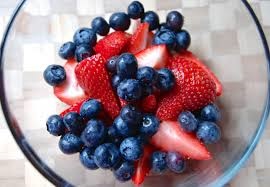The Benefits of Vitamin D
Vitamin D provides a variety of health benefits, especially for the elderly. It helps strengthen bones, which, in turn, helps prevent falls and fractures, two things that can wreck havoc on a senior’s quality of life. Vitamin D strengthens bones by promoting the absorption of calcium. It can also lower the risk for developing osteoporosis or osteomalacia, diabetes or high blood pressure.
Vitamin D can be taken as a daily supplement or through a diet rich in nutrients.
To increase vitamin D levels consider the following:
- Eat fortified foods or drink fortified milk. Vitamin D can be found in foods like salmon, cereal, egg yolks, and cheddar cheese. Simply drinking two glasses of fortified milk a day will fulfill the recommended amount of vitamin D. If milk is not your drink of choice try fortified orange juice.
- Spend time outside. If you live somewhere sunny, like Arizona, it is easy to get a good dose of vitamin D! According to Health, 20 to 25 minutes a day should be enough for you to reap the benefits. For longer periods in the sunshine, wearing sunscreen and a hat is necessary for protection from skin cancers, sun burns and sun damage. When you wear protection, it also reduces vitamin D absorption.
- Take vitamin D supplements. If you are not able to take in an adequate amount of vitamin D through diet and time spent outdoors, you might want to consider a supplement. There are a variety of vitamin D supplements available at any local drugstore, supermarket or health food store. Before taking any supplements, ask a doctor for recommendations, and make sure they do not interfere with other medications.
According to Web MD, other benefits of vitamin D include a reduced risk of diabetes, lower chance of heart attack, rheumatoid arthritis, and multiple sclerosis.
Keep in mind too much vitamin D can be harmful. The American Academy of Pediatrics recommends no more than 4,000 IUs (international units) for healthy adults per day. Adequate intake is considered 600 IU per day for those up to 70 years old and 800 for seniors older than 71 years. For those with limited sun exposure, a higher dose may be beneficial.
Ask a medical professional or pharmacist about finding the right balance of diet, sun exposure and supplements to determine the best combination.

